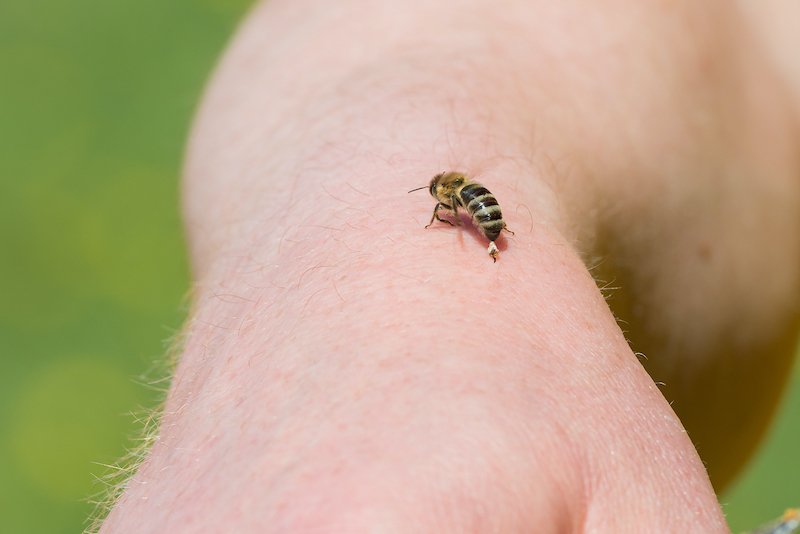


Bee stings are common and can be uncomfortable occurrence for some, but highly dangerous for others. You may one day find yourself in a situation where you need to administer simple first aid for a mild reaction or seek medical care for those with more severe reactions. Read our advice below to learn how you can assist in the event of a bee sting.
Remove the sting
It is important to remove the bee sting immediately to prevent venom from further injecting into the body. Avoid using tweezers or squeezing to remove the sting, as this can increase the venom released from the venom sac. Successful removal of the sting can be achieved by cautiously scraping the sting in a sideward motion with a firm object, such as a fingernail or knife blade. After removing the sting, wash with soap and water, then dry the area.
Treating the bite
Common symptoms of a mild bee sting include:
- Burning
- Redness
- Pain
- Swelling.
To reduce the severity of these symptoms and increase the comfort of the affected individual, you may wish to apply ice or a soothing cream. Administering an antihistamine can also help to soothe itching. If pain persists, you may need medical attention.
Treating serious reactions
Not every bee sting will require medical attention. However, if the person with the sting is known to have severe reactions to stings, or is showing signs of a severe reaction, it is vital that you seek immediate medical assistance from a medical professional. They may be experiencing an allergic reaction, or more seriously, anaphylaxis. Depending on the condition of the person who has been stung, you may need to call emergency services on 000.
How to recognise a severe reaction
Symptoms of an allergic reaction to a bee sting include:
- Hives
- Swelling of body
- Headache
- Dizziness or fainting
- Nausea or vomiting
- Difficulty breathing or swallowing
- Decreased blood pressure
- Loss of consciousness.
How to aid allergic reactions
The use of a prescribed EpiPen should be used in the event of a severe allergic reaction to a bee sting. Seek immediate medical help by calling 000 if the stung individual is having a serious reaction.
If the patient is showing signs of a mild reaction, or symptoms persist for more than 48 hours, visit a GP.




